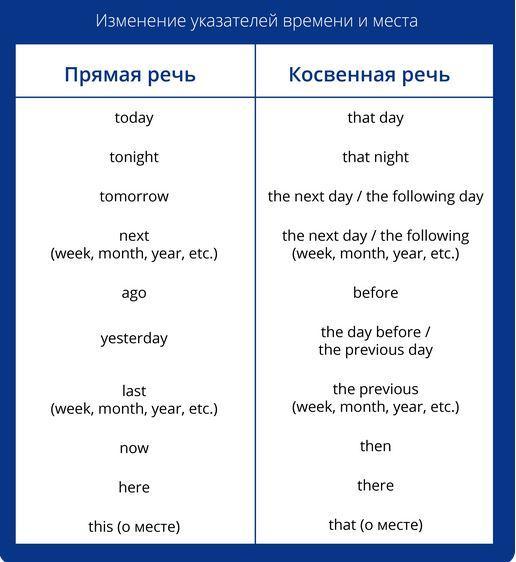Turn the questions from direct into reported speech
2 'When will you call me?' she asked George.
3 She asked, 'Can you play the piano?'
4 He asked, 'Who's there?'
5 'Do you like fish?' she asked Jonathan.
6 'What have you done today?' Mother asked.
7 7 Jim asked, 'Did you go to work yesterday?'
8 'How did you get here?' he asked.
9 'Have you seen my blue jacket anywhere?' she asked.
10 He asked, 'Will you take me to work tomorrow?'
11 She asked, 'Where have you been?'
12 She asked, 'Will they visit us in the summer?'
Ответы
Ответ:
Жирным шрифтом выделены замены слов.
2 'When will you call me?' she asked George.
She asked George when he would call her.
3 She asked, 'Can you play the piano?'
She asked if I could play the piano.
4 He asked, 'Who's there?'
He asked who was there.
5 'Do you like fish?' she asked Jonathan.
She asked Jonathan if he liked fish.
6 'What have you done today?' Mother asked.
Mother asked what I had done that day.
7 Jim asked, 'Did you go to work yesterday?'
Jim asked if I had gone to work the day before.
8 'How did you get here?' he asked.
He asked how I had got there.
9 'Have you seen my blue jacket anywhere?' she asked.
She asked if I had seen her blue jacket anywhere.
10 He asked, 'Will you take me to work tomorrow?'
He asked if I would take him to work the next day.
11 She asked, 'Where have you been?'
She asked where I had been.
12 She asked, 'Will they visit us in the summer?'
She asked if they would visit us in the summer. (тут непонятно, о ком речь, us не меняю, чтобы не запутаться)
Объяснение:
1. Вопросы в косвенной речи передают только содержание вопроса прямой речи, поэтому это уже не вопросы как таковые, а утвердительные предложения.⇒ В конце косвенных вопросов ставится точка.
2. В косвенных вопросах всегда прямой порядок слов.
3. Личные, притяжательные и указательные местоимения, а также наречия времени/места (см. таблицу во вложении) заменяются по смыслу.
4. Общие вопросы вводятся союзами if или whether, означающих «ли»; вспомогательные глаголы do/did опускаются, таким образом порядок слов становится прямым. Все остальные вспомогательные глаголы меняются местами с подлежащим.
5. Не забываем соблюдать правило согласования времен (сдвиг на шаг назад).
